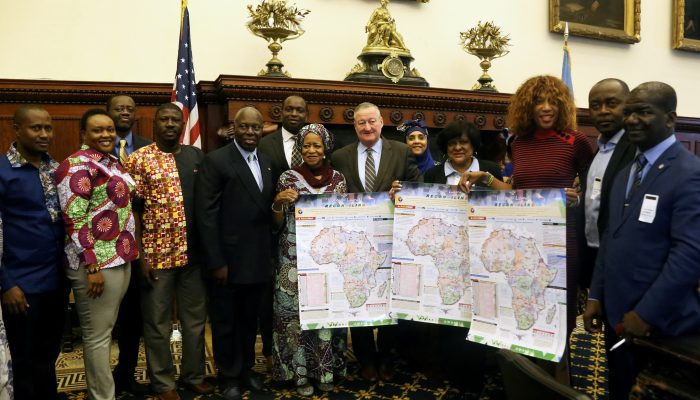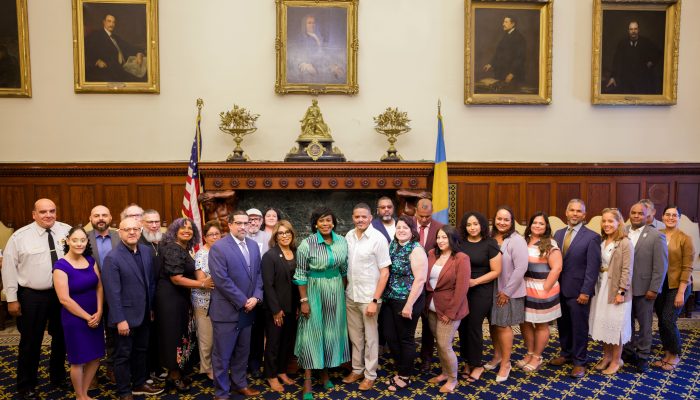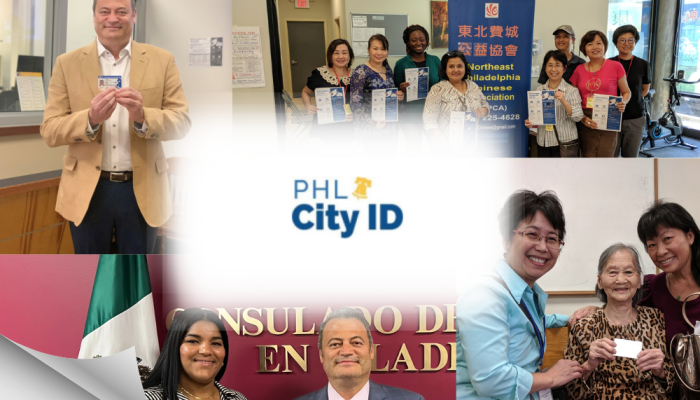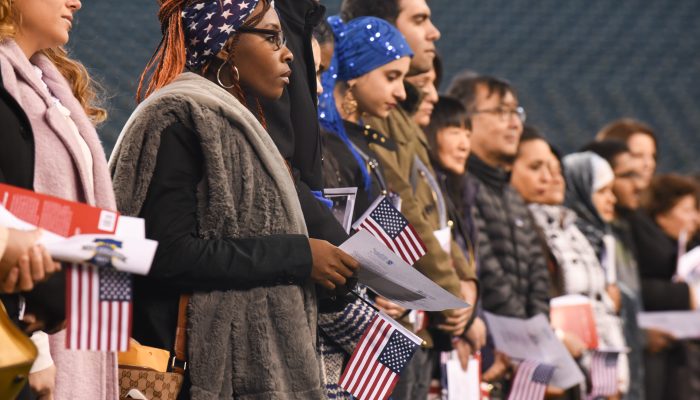Written by Romana Lee-Akiyama, Director of Multicultural Affairs and Bisi Oyelola, Community Citizenship and Outreach VISTA, Office of Immigrant Affairs
In 2005, to address the growing needs of the black immigrant and refugee communities, Mayor John F. Street established the Mayor’s Commission on African and Caribbean Immigrant Affairs through an Executive Order. With leadership from former Councilwoman Jannie L Blackwell, the Commission was brought to life, and over the years has fostered understanding and engaged in resource sharing by creating public awareness of the history, geography, and culture of the African continent, the Caribbean and its diaspora.
Mayoral Commissions are ways in which the public can participate in shaping policies and programs to ensure that government is effective and inclusive. The Mayor’s Office of Public Engagement and the Office of Diversity, Equity and Inclusion are the home to several other Commissions within the City of Philadelphia. Find out more about other Commissions and how to get involved with them here.
The Office of Immigrant Affairs is excited to announce that the Mayor’s Commission on African and Caribbean Immigrant Affairs is now part of OIA. OIA is committed to centering the experiences of immigrant communities in city-wide policy advocacy, making government accessible to all, and elevating immigrant voices. Together, we will strengthen the voices of the African and Caribbean immigrant communities in Philadelphia.
African and Caribbean communities are the fastest-growing immigrant group of Philadelphia’s population, according to the PEW trusts. In fact, Philadelphia’s African population more than doubled between 2000 to 2016. The Caribbean population in Philadelphia is made up of nearly 30,000 people, mainly from Jamaica, Haiti, and the Dominican Republic. These residents often participate in the broader racial umbrella of the black diaspora which includes African-American, African, and Caribbean immigrants and refugees. However, as black immigrants, they face the challenges of grappling with the impact of race in America and the complexities of immigration history and status.
In the midst of the COVID-19 crisis, black immigrants may have difficulty accessing healthcare. African and Caribbean immigrants in Philadelphia rely on City-run health centers or Federally Qualified Health Centers (FQHCs) for care and are at increased risk due to underlying health disparities and their COVID-19 exposure as essential workers. Many are afraid to seek healthcare due to immigration status, lack of insurance status, or limited English proficiency.
Community-based organizations have stepped in as key City partners to reach black immigrant populations. African Family Health Organization (AFAHO), AFRICOM , African Cultural Alliance of North American (ACANA) and Agape Senior Services have provided crucial services such as translation, interpretation, case management, culturally appropriate outreach, and care, small business technical assistance, unemployment benefits assistance, direct health services, pastoral care and grief counseling, senior meal deliveries, advocacy and capacity building. Mutual aid efforts within the Jamaican community have included food access and delivery.
AFAHO, in addition to providing many of the services listed above, provides culturally relevant safety planning and sexual health information and resources to keep families safe. ACANA, the largest service provider for African and Caribbean people in Philadelphia, is ensuring that the commercial corridor on Woodland Avenue in Southwest Philadelphia stays viable and can return back to business operations by the end of the quarantine. They also operate a health clinic directly serving clients. You can learn more about ACANA’s recent activities here.
The Office of Immigrant Affairs also addresses these barriers to care by ensuring that key information from the City is translated into major languages spoken by African and Caribbean immigrant populations such as Kiswahili, Haitian Creole, Arabic, and French. In addition, OIA helps facilitate partnerships with City agencies and advocates for more effective and inclusive policies that impact the lives of immigrants in Philadelphia, including the Philadelphia Department of Public Health.
Historically, the Mayor’s Commission on African and Caribbean Immigrant Affairs has met monthly to discuss the diaspora’s needs. The Commission’s recent meeting in March, included topics of domestic violence and homelessness in the Caribbean community, Census 2020 efforts, and women’s wellness. The meetings are well attended by community members across Philadelphia, oftentimes bringing together more than 100 individuals.
To learn more about the Office of Immigrant Affairs and the Mayor’s Commission on African and Caribbean Immigrant Affairs, please visit our website and sign up to join the OIA mailing list here.




